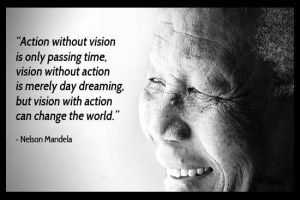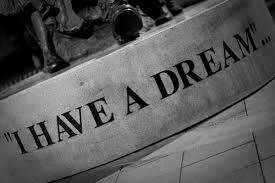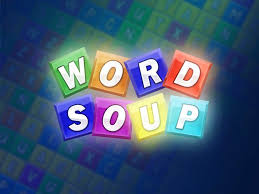
I promised to post some guidelines for those who are writing an essay to win a contest, especially the Inn in Maine. Although I will be personally working with ten people on this contest I have had so many inquiries that I thought to help the best I could by including on my blog some thoughts for writing a 200 word essay. There is wisdom included in the guidelines below from writers other than myself who have learned a few things about writing a short essay of this kind.
Feel free to post questions and please feel free to send me a bit about your story to share with my readers. We can all use inspiration.
Dreaming big is what we should all be doing and without restraint. I hope this helps to dream even bigger.
Essay Writing Information From Maya Christobel
Here are some tips on approaching writing your essay. Over the years I have gathered lots of great advice and experience, which I will jot down for you to help you launch your essay.
- Short is all that much harder than long, but don’t worry. Write as much as you want and then you will slash a burn what is not essential.
- Do not hurry. Allow the muse to whisper in your ear. If you hurry your mid will be in the driver seat and that will not make for a great essay.
- Pay attention to what you might be afraid to say, what you were dreaming the night before you work on your essay, pay attention to your intuition and instinct and particularly pay attention to the visual images you have in your mind.
- This is not a test. Write instinctively first, not like an English major taking a test. Thinking you need to do it “right” will never help you “write”.
Tell a story about you and about your dream: Be specific: The more personal the better. Think of your own experience, work, and family, and tell of the things you know that no one else does. Find the unique points of your dream and focus on them. Instead of saying something about loving your parents and wanting to help them run a B+B, say more than that: Say why you love them, what makes them so special and the perfect people to realize their dream. Your story need not be heart-warming or gut wrenching—it can even be funny—but it has to be real.
Be personal: Write in words and phrases that are comfortable for you to speak. I recommend you read your essay aloud to yourself several times, and each time edit it and simplify it until you find the words, tone, and story that truly echo your belief and the way you speak. In fact take your iPhone or a recorder and simply tell your story and then play it back many times. This will help you focus on what feels right, what stands out and what may not fit. Tell your story first to a best friend and see what she or he is moved by.
Consult your Heart: When you are limited to 200 words, which is not quite one page you will be doing a lot of thinking about what you need or want to write. My advice is to please write from your heart first. Do not focus on grammar or spelling or word count. Make sure you are answering the following questions:
- Why does owning this Inn inspire you?
- How would it change your life AND others.
- What particular experience do you have that helps you run an Inn.
- Why are you the best candidate? What makes you Unique?
Then Lead Your Essay with a Good Hook, this is most important.
When it’s time to start writing your essay contest entry, remember that the first sentence is the most important of all. If you can start with a powerful, intriguing, moving, or hilarious first sentence, you’ll hook your readers’ interest and stick in their memory when it is time to pick winners. Remember you are competing against 7500 other dreamers so that first sentence needs to stand out.
Write Your First Draft Essay
Now is the time to get all of your thoughts down. At this stage, it’s not necessary for everything to be perfectly polished; you’re just setting down the bones of your final essay contest entry. Try to hit the points you most want to communicate. If your essay is running longer than the word count limit, don’t worry about it at this stage, I will help you trim the fat.

Keep an Eye Out for “Red Mittens”
This is something I learned along the way that has been indispensable. The “red mittens” idea has to do with making sure you have something so unique and visual in the essay that they will remember you out of the crowd. It is like planting an Easter egg in the bushes. Here is a great piece of information.
Excerpt from Sandra Grauschopf: Contests & Sweepstakes Expert
“In her fantastic book, The Prize Winner of Defiance, Ohio, Terry Ryan talked about how her mother used “Red Mittens” to help her be even more successful with contest entries. To quote from the book:
“The purpose of the Red Mitten was almost self-explanatory — it made an entry stand out from the rest. In a basket of mittens, a red one will be noticed.”
Among the Red Mitten tricks that Evelyn Ryan used were rhyme, alliteration, inner rhyme, puns, and coined words.
While Evelyn Ryan mostly entered jingle and ad-type contests, the Red Mitten theory can be used to make any essay contest entry stand out. Your Red Mitten might be a clever play on words, a dash of humor, or a heart-tugging poignancy that sticks in the judges’ minds.”
Then Revise Your Essay for Flow
Once you have written the first draft of your essay contest entry, look it over to ensure that it flows smoothly. I will be helping you all along the way to make sure that you say what you need in compelling ways and that it flows. Is your point well made and clear? Does the essay flow smoothly from one point to another? Do the transitions make sense? Does it sound good when you read it aloud? Remember this is a final piece of writing and at the beginning you just need to get all your feelings and thoughts on paper even if it is five pages.
At this point you and I will cut out extraneous words and make sure that you’ve come in under the word count limit.
In Stephen King’s book which I believe is one of the best out there, On Writing, he talks about a rejection notice he once received that read: “Formula for success: 2nd Draft = 1st Draft – 10%.” In other words, the first draft can always use some trimming to make the best parts shine.
Now Put Your Writing Away
When you have a fairly polished first draft of your essay contest entry, put it aside and don’t look at it for a little while. If you have time before the contest ends, put your essay away for at least a week. Let your mind mull over the idea subconsciously for a little while and see what else bubbles up.
I can’t tell you the number of times I’ve sent in an entry and then thought of something that I should have added to make it perfect. Letting your entry simmer in your mind and heart gives you the time to come up with these great ideas before it’s too late.
Finally, Revise Your Essay Again and Again
Now is the time to put the final polish on your essay contest entry. Have you said everything you wanted to say? Have you made your point? Does the essay still sound good when you read it aloud? Can you tighten up the prose by making any additional cuts in the word count? And let people you know read it. They will have great ideas. You don’t have to use them but you may want to.
If possible, this is a good time to enlist the help of friends or family members. Read your essay aloud to them and check their reactions. Did they smile in the right parts? Did it make sense to them?
And ask a friend to double-check your spelling and grammar. Even your computer’s spell check programs make mistakes sometimes, so it’s helpful to have another person read it over. I will do that with you but you will want to have another person in the wings that is great at this sort of thing.
The Magic Bullet: The Power of Your Intention
What I encourage you to do is to not focus on winning but focus on learning more about yourself, your dream, more about listening to your “deep voice” and allowing yourself to be vulnerable and honest. You can do that with a tiny story, with humor or with a quote.
And I encourage you to do the envisioning that will make your intention to win the Inn a reality. Cut out a photo of the Inn, paste it above where you write. Do a daily visualization of you owning the Inn, people coming, joy happening, you feeling successful and happy. This is your most powerful writing tool
Happy writing!




















